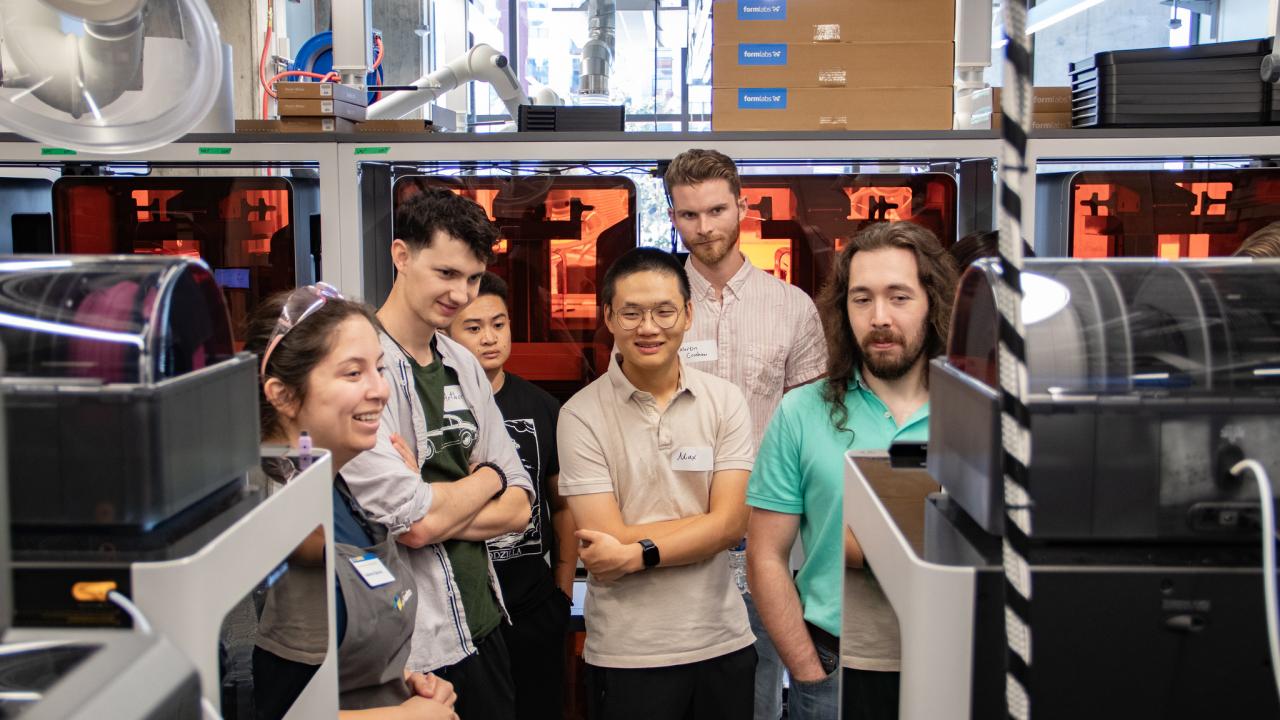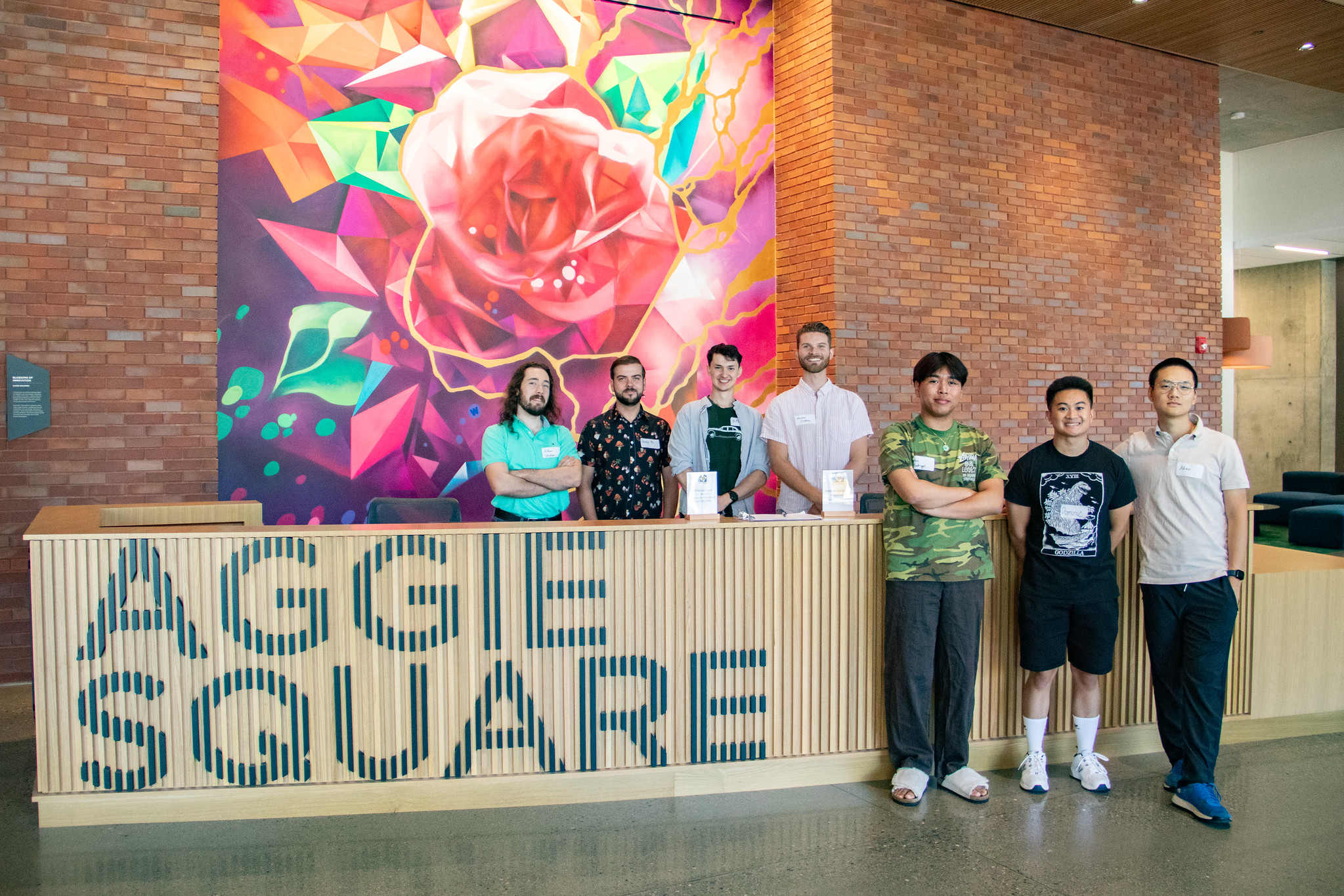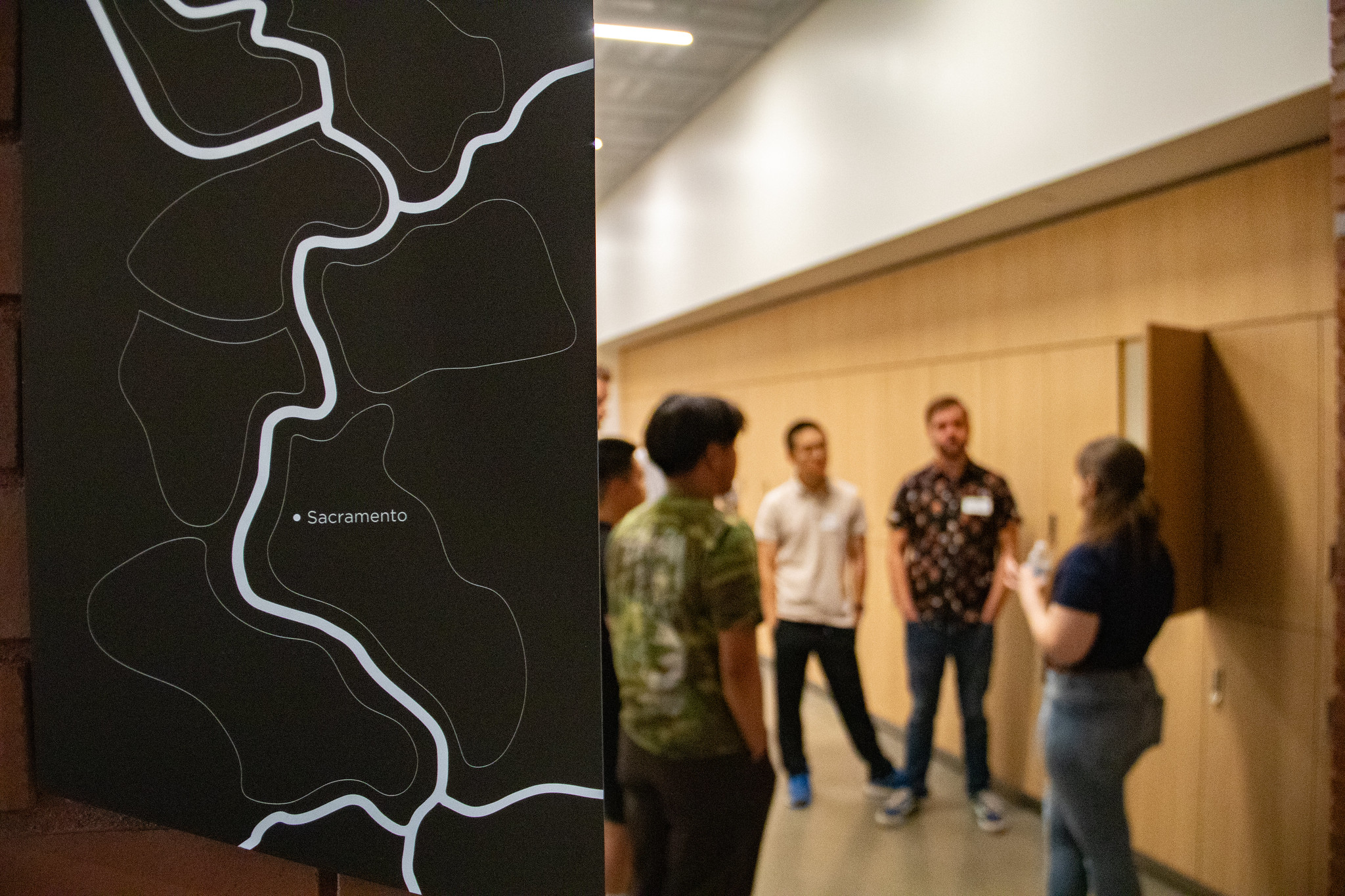
Aggie Square Welcomes Inaugural Class of Master’s Program in Medical Device Development
Following its announcement last year, the Master of Engineering in Medical Device Development has officially launched at Aggie Square, the Sacramento innovation district anchored by the University of California, Davis.
The nine-month master’s degree, part of the Department of Biomedical Engineering, combines engineering and design with entrepreneurship and leadership, offering experience comparable to five to seven years in industry.
A key feature is that students partner with mentors from UC Davis Health — located just blocks away from their Aggie Square classrooms — shadowing them during clinical immersion opportunities to assess and develop innovative solutions for human health. In similar programs, students typically skip hands-on learning and problem-solving with healthcare professionals, working through pre-selected clinical needs instead.
The program is also unique due to its partnerships with UC Davis Tech Foundry, which has a state-of-the-art, 7,500-square-foot prototyping facility where students can bring medical device ideas to life at Aggie Square, and the Graduate School of Management, where students receive expert coaching on business and leadership skills outside the classroom.

“The vision for this program has always been to get engineers into the healthcare workflow where they can work side-by-side with clinicians to identify new and innovative ways to improve healthcare delivery,” said Steven C. George, chair of the Department of Biomedical Engineering. “This experience is augmented by practical business, leadership, engineering and product development skills that will accelerate the careers of the students.”
The program is divided into four course series. Professor of Biomedical Engineering Anthony Passerini and Assistant Professor of Teaching in Biomedical Engineering Xianglong Wang lead engineering skills, while capstone design, product design and business and leadership are all taught by industry experts.
In the capstone design series, students will turn clinical observations into working prototypes. Kathleen Gallo, a medical device professional with over 15 years of industry experience, teaches the series and wants students to understand how to build business plans and navigate regulatory strategies.
“When you're working on a new technology, you're presenting to investors, collaborators and potential clinical partners,” she said. “You're refining your message [frequently]. We're going to get a lot of practice doing that.”
Kate Stephenson has worked for over 20 years as an engineer and technical consultant, helping bring medical devices to market and running her own consulting firm. She leads the product design series, fostering technical skills and resiliency to a rapidly changing landscape.
“I've already seen multiple quality management tools taking advantage of AI,” she said, “and some of these students are going to be submitting products to the U.S. Food and Drug Administration that there’s no precedent for yet. I want to make sure that my students stay lifelong learners and have the flexibility to adapt as our industry changes.”

Building on their product development skills, students will take three courses on business and leadership with Ilham Birkan. Birkan is a C-suite business developer and marketer with extensive experience launching successful medical device and life sciences products.
Birkan aims to turn his classroom into an office-like environment, where students become coworkers and he acts as a supervisor. Together, they will review examples of historic medical devices, including one of Birkan’s previous projects, to gain practical experience in soft skills such as adapting to company culture and time management, as well as hard skills like marketing and product management strategies.
Birkan is especially excited that his students will be at the forefront of the growing medical device industry in the Greater Sacramento region.
“This takes it out of a university or school format and puts it into a real-world situation,” Birkan said of the program being taught exclusively at Aggie Square. “At a school, we're focused on learning, but here, this could be a step beyond that, getting closer to the business world, to the real world and having a much more open mind about how we can develop new products and approaches.”
Regarding the program overall, Gallo said, “I think it's exactly what's needed to help engineers take that next step and get the skills to make that leap to industry, to make them much more marketable and to make them much more effective when they get that first job.”
Applications for the next cohort open in October, with classes beginning in September 2026. Explore the program's webpage to learn more and sign up for an upcoming webinar.
